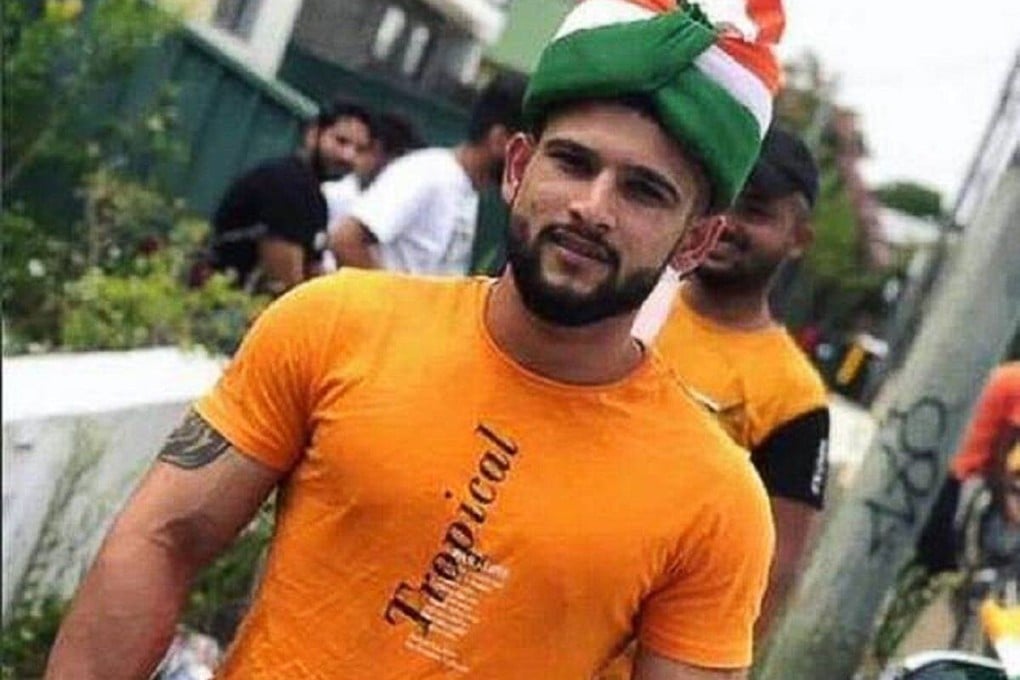Why did a Hindu who attacked Sikhs in Australia receive a hero’s welcome in Modi’s India?
- International student Vishal Jood was asked to leave Australia after being linked to a series of attacks on Sikhs. Rather than opprobrium, on his return he was greeted by a roadshow and politicians calling him a patriot
- Critics who accuse prime minister Narendra Modi’s BJP party of fuelling Hindu nationalism in India warn Jood’s case shows how the problem has spread to overseas diasporas

A roadshow greeted Vishal Jood, 24, “an unlawful non-citizen” of Australia as he arrived back in his home state of Haryana on Sunday. A fleet of cars drove through the streets of the city of Karnal in celebration, while a garlanded Jood appeared from a sunroof, waving the Indian flag and smiling.
Jood was arrested in April in connection with attacks that took place on Sikhs in September 2020 and February 2021, including one in which he was armed with a baseball bat. He was also charged with hate crimes, but these were dropped by the New South Wales’ department of public prosectors. While he admitted three charges related to assault, actual bodily harm and being armed with intent, he and his supporters have portrayed his acts as patriotic. Jood claims that at the time of the attacks he was trying to prevent the Indian flag from being desecrated by Sikhs demanding the creation of a “sovereign state” consisting of land that currently forms Punjab on both sides of India and Pakistan to be known as Khalistan.
While still in jail, Jood had said on Facebook live that an altercation had taken place when he heard “Khalistanis” shouting anti-Modi slogans during a protest and he shouted “Bharat Mata Ki Jai [Hail Mother India]” in return. He claimed the protestors had hit his head, taken the Indian flag he was carrying and thrown it on the floor.
It’s a narrative of events that – despite not winning the sympathy of the Australian justice system – has been faithfully parroted both by sections of the Indian diaspora in Australia and New Zealand and various BJP politicians in India, who portrayed Jood on his arrival home as a “hero” and a “victim”.